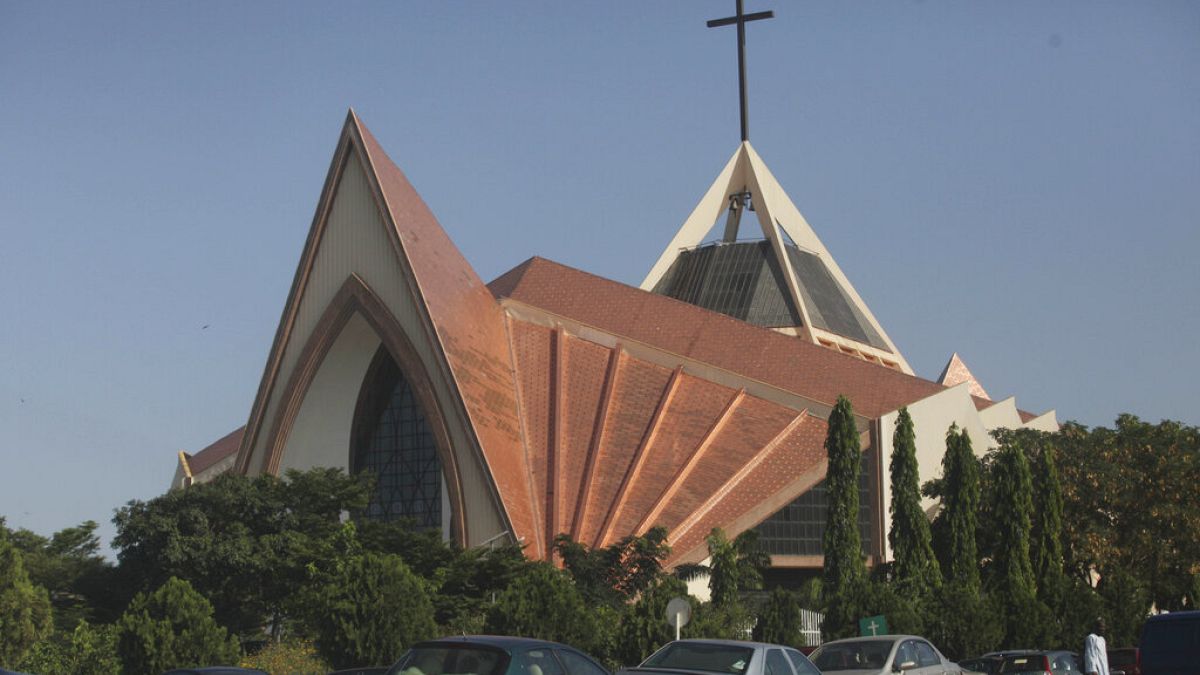The victims collapsed in crowd surges as people grew desperate for Christmas church food handouts during the worst cost-of-living crisis in a generation.
Stampedes at three Christmas charity events across Nigeria have tragically left at least 67 people dead in the past week, many of them children.
At least 35 children were killed in southwestern Oyo state on Wednesday. And on Saturday, 22 people died in south-eastern Anambra state while 10 died in the capital, Abuja, where more than 1,000 people had gathered at a church to receive clothes and food.
Here’s why people in Africa’s most populous country are risking their lives for holiday donations.
“There is hunger in this Nigeria. Every Nigerian needs food,” one woman, in tears, told the local Arise television after the stampede in Abuja.
The economic crisis is blamed on the government’s policies to save money and attract investors, which have contributed to pushing the inflation rate to a 28-year high of 34.6%. Meanwhile the naira currency languishes at record lows against the dollar.
At least 63% of Nigeria’s more than 210 million people population is poor, according to the government’s statistics office. The government has struggled to create jobs. And when people gather to protest hardship, security forces are quick to clamp down. In August, more than 20 people were shot dead by security forces during nationwide protests.
“The average Nigerian has seen food go out of their reach,” said Cheta Nwanze, managing partner at the Lagos-based SBM Intelligence research firm. In 2022, the firm found that about 97% of Nigerians spend up to 63% of their income on food, but that share must have grown since then, he said.
Some of those who died in Abuja had waited overnight outside the church in cold weather for the chance to enter early, according to Loveth Inyang, a witness who rescued a baby from the crush.
Deadly stampedes are not new in Nigeria and are often caused by lack of adherence to public safety measures. But analysts say people’s desperation to survive is making crowd control more difficult.
Accounts from witnesses and police in Abuja and Anambra showed that the stampedes occurred before the events started as people tried to secure prime positions.
In Abuja, the church was forced to cancel the event, leaving bags of rice and clothing items inside.
Organisers of such charity events often do not consider security a priority, said Ademola Adetuberu, who runs the Abuja-based Barricade Executive Protection security firm.
Meanwhile, the number of events is increasing as philanthropists and organisations try to meet the growing demand for food.
“If organisers of such events brainstorm more, get professionals to advise them and have a budget for security, this can be prevented,” Adetuberu said.
Nigeria’s President Bola Tinubu has asked authorities to no longer tolerate “operational lapses” by organisers of such events, while police have made it mandatory for organisers to get prior permission before hosting them.
But such commitments are not new and usually difficult to enforce, analysts said.
“People’s incomes have been squeezed through the entire year. When they hear somewhere that food is being distributed, their natural instinct is to go,” Nwanze said. “Add this to our notoriously poor queue culture and you have the perfect storm that will lead to such a stampede.”






